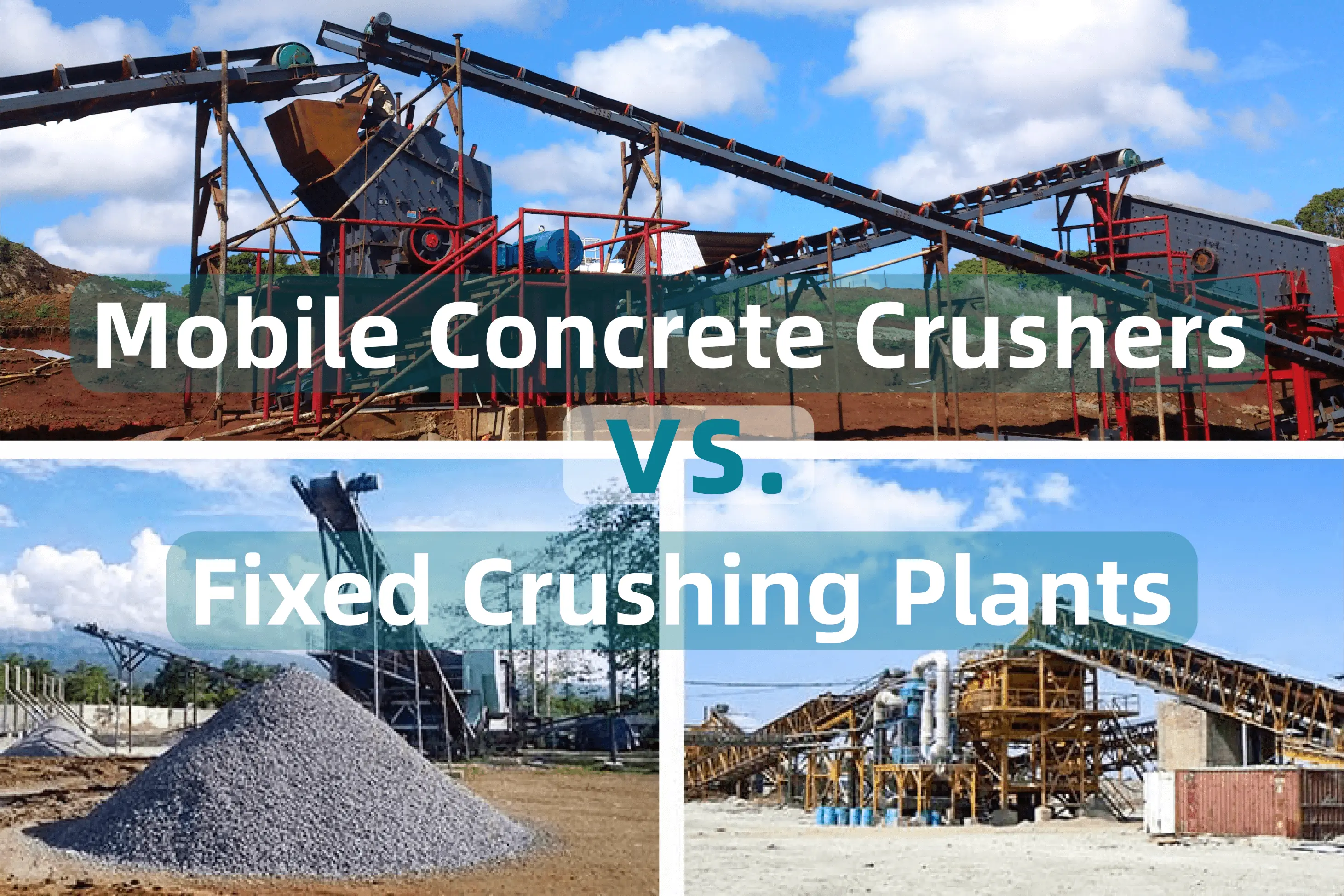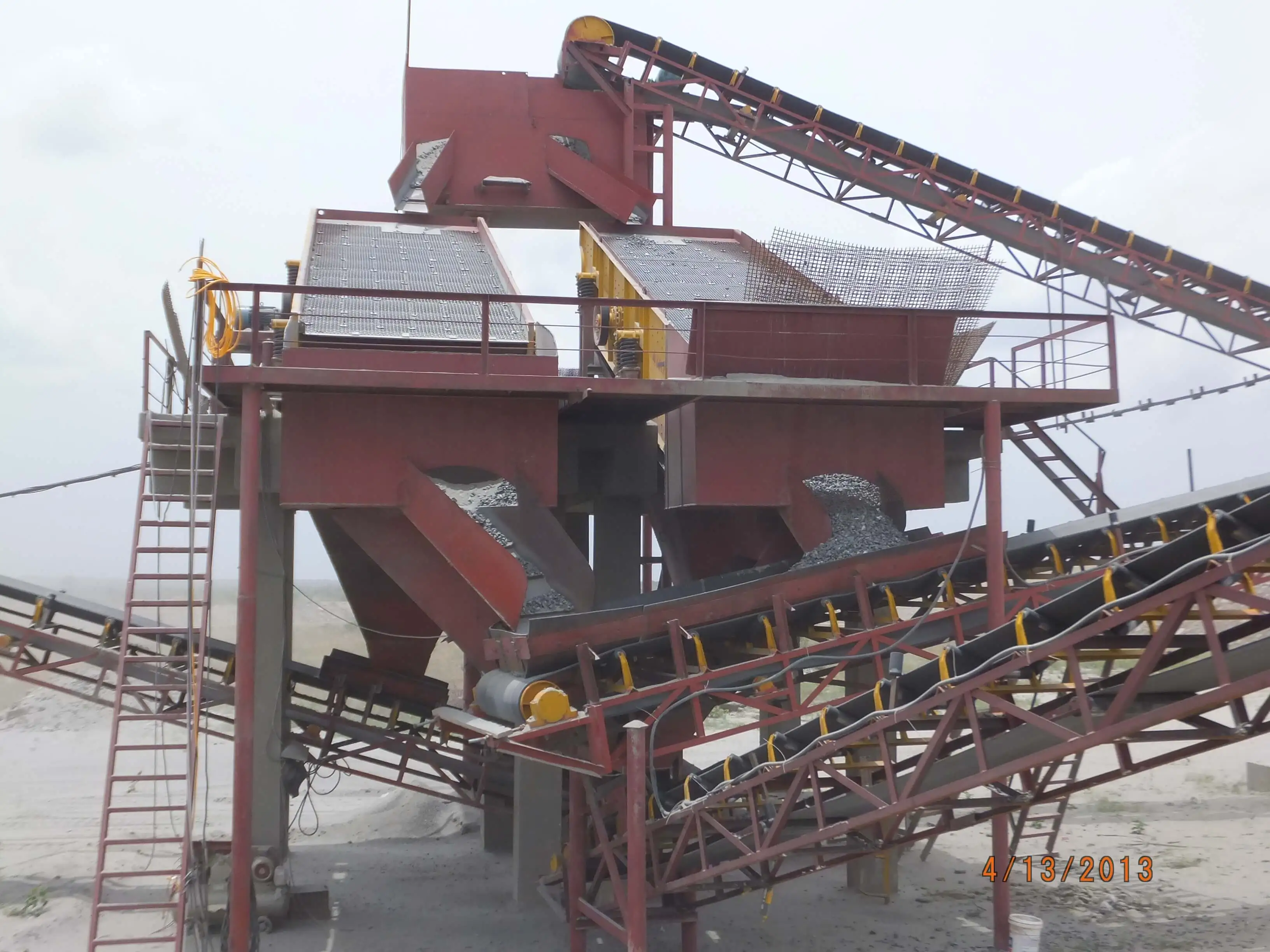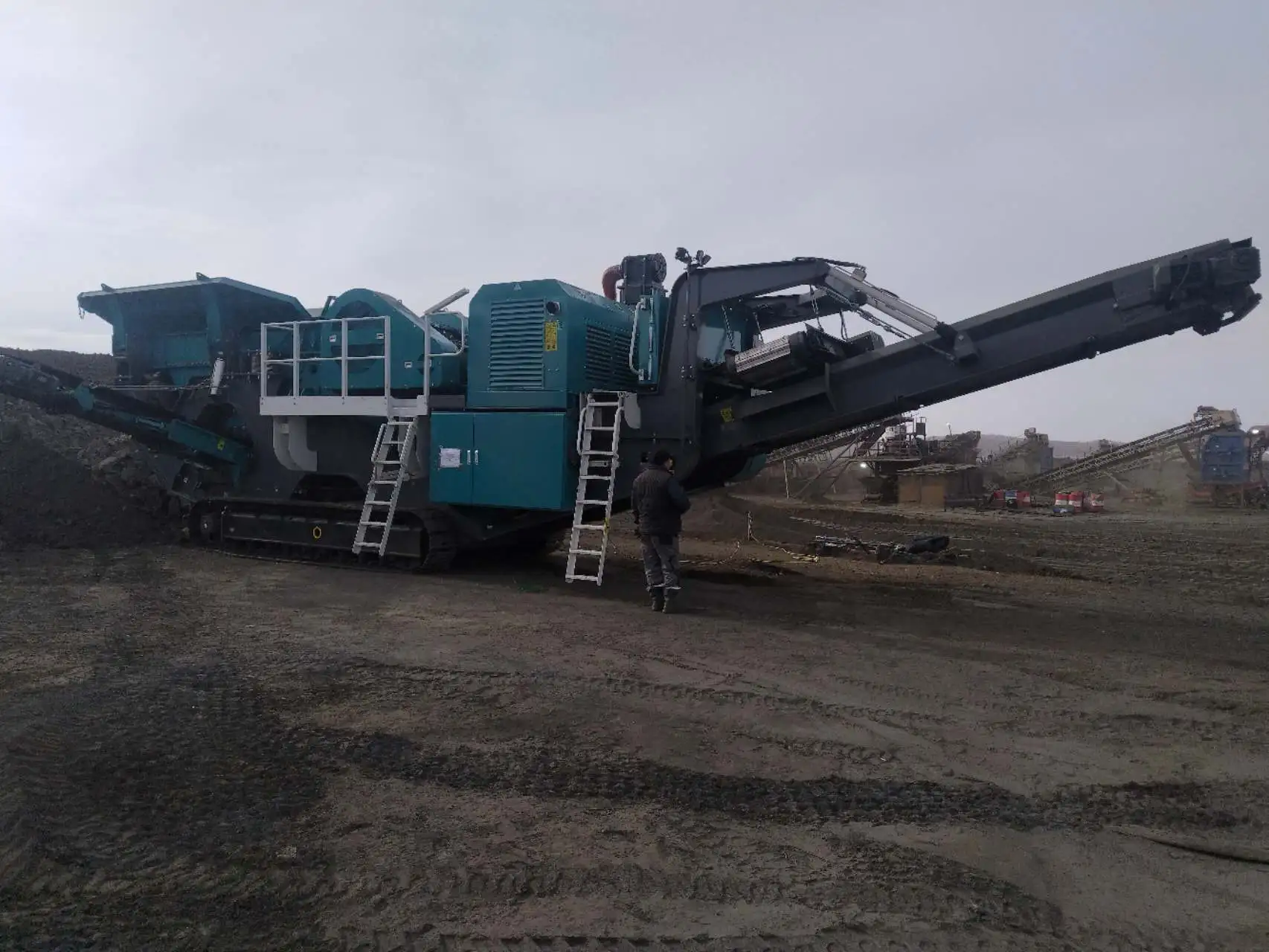
Ultimate Guide: Mobile Concrete Crushers vs. Fixed Crushing Plants
The global concrete crusher market is expected to reach $42 billion by 2024, handling 2.8 billion tons of construction waste annually. Contractors are now faced with a tough decision: should they invest in portable concrete crushers for flexible operation, or should they invest in fixed crushing plants for large-scale production? This guide, backed by real cost data and ten years of industry experience, helps you make the right decision.
Market Landscape: The $42 Billion Tough Choice for Concrete Crushers
As urban demolition and reconstruction accelerate, concrete crushers have become essential tools for processing construction waste. Portable concrete crushers are particularly suitable for urban renewal projects due to their flexibility and ease of deployment. On the other hand, fixed crushing plants remain the dominant force in quarries, thanks to their higher production capacity and stability. In simple terms, it's the choice between flexibility and high output.
Initial Investment: The Money-Saving Strategies of Concrete Crushers

Portable concrete crushers can save approximately 20-30% on upfront investment. The primary reasons are threefold: first, there’s no need to lay a foundation, saving civil engineering costs; second, interchangeable parts lower maintenance expenses; and third, renting instead of purchasing reduces financial pressure. For example, a tracked crusher starts at around $850,000, significantly cheaper than the equivalent fixed equipment. On the flip side, for a fixed crushing plant, just pouring the 600 cubic meter concrete base will cost $150,000, and additional conveyor and dust collection systems cost another $300,000. With approval and installation, it can take up to six months before the equipment is operational and starts generating profit.
Transportation Costs: Saving on Transport with Concrete Crushers
A unique advantage of portable concrete crushers is their ability to process construction waste on-site. To put it into perspective: for every 100 miles you reduce transportation of waste, you can save up to $18,000 in transport costs. If the processed aggregates are directly used on-site, transportation distances are cut by 60%. Fixed crushing plants, however, present more challenges: waste must be transported to the plant first, and then the processed aggregates have to be sent to the site. The additional transportation cost is approximately $27,600 per 100 miles, not including secondary transportation.
Daily Operation: Precision in Fuel and Labor Costs for Concrete Crushers
Portable concrete crushers today use hybrid power systems, saving up to 30% on fuel costs. Their smart features are particularly useful—if the machine is left idle for 10 minutes, it automatically shuts down, saving 200-300 liters of diesel per day. In terms of electricity, processing one ton of material only uses 25 kWh. Fixed crushing plants, however, are a different story. Conveyors, even when idle, still consume electricity, and additional systems like dust collectors and lighting drive up the energy bill by 10-20%. Labor costs are also noticeably higher—while one person can operate a portable crusher, fixed plants require four people working three shifts, leading to a labor cost difference of $180,000 per year.
Maintenance and Upkeep: Less Downtime Equals More Profit with Concrete Crushers

Portable concrete crushers are designed to minimize downtime with three key features: first, tungsten carbide rotors last 1,200 hours—double the lifespan of standard manganese steel; second, part replacement doesn’t require disassembling the machine and can be done in 10 minutes; third, an AI system provides a 150-hour advance warning for maintenance, ensuring repairs are carried out during idle times. Fixed crushing plants, however, require cranes for part replacement, and bad weather can halt operations. Furthermore, outdoor equipment tends to deteriorate more quickly.
Application Scenarios: Choose the Right Battlefield for Concrete Crushers
Portable concrete crushers are particularly well-suited for three scenarios: first, urban renewal, where they can access narrow 3.5-meter alleyways and meet noise control standards; second, short-term projects, where renting is more economical than purchasing, saving up to 80% of costs for a six-month project; third, emergency tasks like disaster relief, where they can be deployed and start working within 24 hours. However, fixed crushing plants still have a role to play, especially in large-scale quarries and government infrastructure projects, where high output and stable quality are essential.
Technical Specifications: Concrete Crusher Quality and Environmental Performance Matter
The shape of aggregates directly affects the strength of concrete. Portable concrete crushers produce aggregates that are 95% cubic, while jaw crushers in fixed plants may produce up to 15% flaky material, which reduces strength. In terms of environmental performance, portable crushers have the edge with their closed-loop water systems that use only 0.8 liters of water per ton of material processed, while fixed plants require 1.5 liters, with 20% of it evaporating in the process.
Market Trends: Future Growth Potential of Concrete Crushers
The demand for mobile concrete crushers is expected to grow significantly over the coming years, driven by the increasing need for efficient waste management solutions in urban development projects. As cities expand and aging infrastructure is demolished, the need for on-site material processing becomes more crucial. The market for portable crushers is further fueled by stricter environmental regulations and the growing focus on sustainability. With technological innovations, mobile crushers are becoming more energy-efficient, durable, and capable of processing larger volumes of waste in less time, positioning them as the preferred choice for many future construction and demolition projects.
Environmental and Regulatory Requirements: Concrete Crushers Comply with Stricter Standards
As environmental concerns continue to rise globally, governments are enforcing stricter regulations on construction activities. This includes noise and dust control, energy consumption, and waste management. Portable concrete crushers are often better equipped to comply with these regulations, thanks to their compact design, reduced emissions, and ability to operate in noise-sensitive urban areas. Moreover, they contribute to a circular economy by processing and reusing construction waste, which reduces landfill usage and helps conserve natural resources. Fixed plants, while effective for high-output tasks, may face more challenges in meeting these environmental standards, especially in urban settings.
Recent articles
- Rock Crushers Unveiled: All the Insider Secrets You Must Know
- Crushing Equipment: An In - Depth Exploration
- Crushed Concrete: The Rise and Application of Sustainable Construction Materials
- Everything You Need to Know about Jaw Crushers and Mobile Jaw Crushers
- Everything You Need to Know About Buying and Renting Rock Crushers
- Jaw Crusher vs Cone Crusher: Performance Showdown – How to Choose the Right One for Your Needs
- Unraveling the Mysteries of Screening and Crushing Equipment: Your Comprehensive Guide
- what are impact crushers in concrete production
- Why Choose OEM Parts for Your Crusher? The Advantages of OEM Over Aftermarket
- Rock Crushers & Portable Rock Crushers: All You Need for Mining, Construction & Industrial Use
- Exploring Jaw Crusher Efficiency: Innovation, Applications, and Real-World Impact
- Why High-Performance Concrete Crushers Are Essential: Revolutionizing Recycling and Aggregate Production
- How to Choose the Right Rock Crusher for Your Project: In - depth Analysis of 7 Portable Equipment Types
- Portable Rock Crushers: Redefining Waste Management and Aggregate Production in the Circular Economy Era
- Portable Rock Crushers: Redefining Waste Management and Aggregate Production in the Circular Economy Era

.webp)


